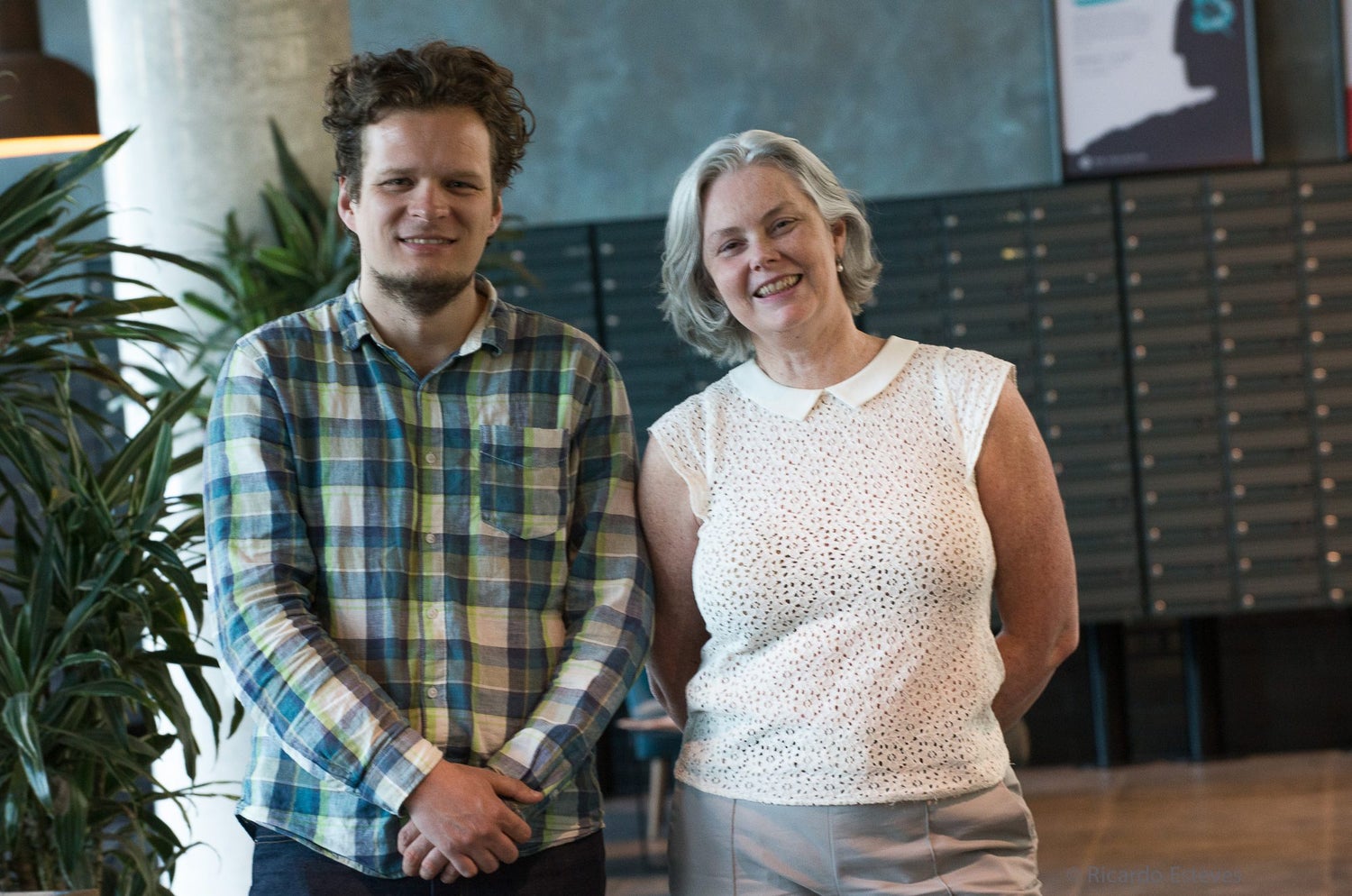As the old saying goes, “age is nothing but a number”. In a world where three quarters of older people describe themselves as lonely according to a recent report by the Jo Cox Commission on Loneliness, could ‘generation gap’ friendships help solve this problem?
Tamàs, 32, thinks so. He moved to the The Collective Old Oak in early 2017, and has since formed a strong friendship with 59-year-old Brazilian freelance interpreter Lucilia (both pictured above!).
“We became friends when I started helping out with organising various events in The Collective and Lucilia became involved after her and her family moved in,” says Tamàs, who is originally from Hungary. “Lucilia and I have similar interests, such as learning languages and travelling. I don’t really feel like there is an age gap, although sometimes she will ask me what kinds of things younger people are into so she can talk to her daughter about them.”
As well as Tamàs, Lucilia has a “number of friends” in their 20s and 30s. “The Collective is a very sociable place, so it’s actually harder to not make friends than to make friends,” she says. “I think the average age here is around 27 or 28, so the majority of my friends who live here are this age. What I like about having younger friends is that they have different ideas – they look at the world in a different way. Also they recommend me new music and take me to interesting places in London where they enjoy going, which I may not have found otherwise. I love it.”
What I like about having younger friends is that they have different ideas – they look at the world in a different way.
“I see a real benefit in having friends of different ages,” says psychologist Dr Tony Ortega. “I myself have important people in my life who are older and younger than me, and have taught me amazing things – for example one of my older friends has told me a lot about gay culture when he was growing up and it’s fascinating to hear. With older people you get the connection to their roots, and with my younger friends I get the pulse of what’s going on in terms of society right now. I am grateful for having friends of different ages because you learn so much about so many things.”
Dr Ortega believes that age gap friendships are becoming more common. In the past, he says loneliness was more visible in the older generations, while feelings of isolation in younger people were usually more hidden. “With the rise of social media, I believe more people have come forward to talk honestly about loneliness – this has broken down barriers relating to this, and has helped to give people of different generations common ground.”
With the rise of social media, I believe more people have come forward to talk honestly about loneliness – this has broken down barriers relating to this, and has helped to give people of different generations common ground.
Social media also provides an easy opportunity for people of different ages to meet and chat – especially if they have the same interests. “Sometimes I think older people can get scared of hanging out with younger people, and vice versa, as they fear this may make them open to criticism, such as being seen as ‘old-fashioned’ or ‘frivolous’,” adds Dr Ortega. “However, social media is connecting people in ways we weren’t before and this has helped many people change their perception of what a typical younger or older person might be like.”
It can often seem like there is an ‘us v them’ narrative in the media, especially among millennials (aged 22 to mid-thirties) and baby boomers (born between the end of World War II and the mid-1960s). For example, millennials are often labeled as apathetic, unable to grow up and social media-obsessed, and baby boomers blamed for recent financial crises and political divides around the world. Having friends of different age gaps can help to heal these rifts, and stop ceaseless stereotyping.
Last year, US writer Gina Pell coined the term ‘perennials’, a name for a group of people of all ages. She describes perennials as ‘ageless’, people who engage with the world around them and are creative, compassionate, confident and global-minded. She believes they transcend stereotypes of how people of different age groups are supposed to be – having a ‘perennial’ mindset is healthy, and can help you avoid loneliness.
“I think the whole issue with age gaps is that it comes down to one’s perception of themselves,” says Dr Ortega. “The more comfortable you are in your own skin, the less the age of people you’re friends with matters.” Modern forms of work and living, such as co-working and co-living, also offer the potential to meet more people of different ages, as well as nationalities.
Lucilia says that many of the people she’d befriended at The Collective Old Oak have a forward-thinking viewpoint. “We have a debate club here, that I like to go to and it’s so refreshing to hear the way younger people discuss things and the way they think, they are full of energy and believe in the world,” she says.
“My younger friends also never see me as being older than them, it feels nice and natural – they’re interested in me as a person, not me as a person of a certain age. I think it’s so wonderful when people can get together and I think people of different generations should care about the others. We help each other to live and be happier, and I know that I’ve made friends for life here.”
